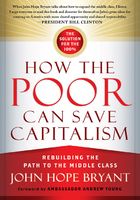I was very young and lived with my grandparents in a villa with white walls in the Calle Ocharán, in Miraflores. I was studying at the University of San Marcos, law, as I remember, resigned to earning myself a living later on by practicing a liberal profession, although deep down what I really wanted was to become a writer someday. I had a job with a pompous-sounding title, a modest salary, duties as a plagiarist, and flexible working hours: News Director of Radio Panamericana. It consisted of cutting out interesting news items that appeared in the daily papers and rewriting them slightly so that they could be read on the air during the newscasts. My editorial staff was limited to Pascual, a youngster who slicked down his hair with quantities of brilliantine and loved catastrophes. There were one-minute news bulletins every hour on the hour, except for those at noon and at 9 p.m., which were fifteen minutes long, but we were able to prepare several of the one-minute hourly ones ahead of time, so that I was often out of the office for long stretches at a time, drinking coffee in one of the cafés on La Colmena, going to class now and again, or dropping in at the offices of Radio Central, always much livelier than the ones where I worked.
The two radio stations belonged to the same owner and were next door to each other on the Calle Belén, just a few steps away from the Plaza San Martín. The two of them bore no resemblance whatsoever to each other. Or rather, like those sisters in tragic drama, one of whom has been born with every possible grace and the other with every possible defect, what was most noticeable was the contrast between them. Radio Panamericana occupied the third floor and the rooftop terrace of a brand-new building, and its personnel, its ambitions, and its programs all had about them a certain snobbish, cosmopolitan air, pretensions of being modern, youthful, aristocratic. Although its disc jockeys and m.c.'s weren't Argentines (as Pedro Camacho would have put it), they might just as well have been. The station broadcast lots of music, hours and hours of jazz and rock plus a bit of classical stuff now and again, it was always the first to put the latest hits from New York and Europe on the air in Lima, yet at the same time it did not disdain Latin American music so long as it had a modicum of sophistication; as for Peruvian selections, they were cautiously screened and allowed on the air only if they were waltzes. There were also programs calculated to appeal to intellectuals among the listening audience, such as 'Portraits from the Past' or 'Reports from Abroad,' and even in frivolous mass-entertainment programs, such as 'The Quiz Show' or 'The Trampoline to Fame,' there was a noticeable attempt to avoid excessive stupidity or vulgarity. One of the proofs of its cultural preoccupations was its News Section, consisting of Pascual and me, working out of a wooden shack on the rooftop terrace, from which we could see garbage dumps and the last remaining colonial windows let into the roofs of Lima. The one access to our hideaway was by way of an elevator whose doors had the disquieting habit of opening before it stopped.
Radio Central, by contrast, occupied cramped quarters in an old house with all sorts of odd corners and courtyards, and one needed only to listen to the relaxed, easygoing, slang-ridden voices of its announcers and m.c.'s to recognize its popular, plebeian, frankly parochial appeal. It broadcast very few news reports, and on its frequency Peruvian music, including popular Andean tunes, held sway, and often Indian singers from the music halls about town participated in these broadcasts, open to the public, which drew vast crowds to the doors of the studio many hours before they went on the air. It also flooded the airwaves with tropical music from Mexico and Argentina, and its programs were simple, unimaginative, attracting a wide audience: 'Telephoned Requests,' 'Birthday Serenades,' 'Gossip from the World of Entertainment,' 'Celluloid and Cinema.' But its plat de résistance, served up repeatedly and in great abundance, and the feature that, according to all the surveys, attracted its vast listenership, was the serials it sent out over the airwaves.
They broadcast at least half a dozen a day, and I greatly enjoyed spying on the casts when they were in front of the microphone: hungry, shabbily dressed actors and actresses on the decline, whose tender, crystal-clear, young voices were terribly different from their old-looking faces, their bitter mouths, and their tired eyes. 'The day television comes to Peru, the only way out for them will be suicide,' Genaro Jr. predicted, pointing to them through the big glass panels of the studio, where, as though in an enormous aquarium, you could see them grouped around the microphone, scripts in hand, ready to begin Chapter 24 of 'The Alvear Family.' And what a disappointment it would have been for those housewives who grew misty-eyed on hearing the voice of Luciano Pando if they could have seen his hunchbacked body and his squinty eyes, and what a disappointment for those pensioners to whom the musical murmur of Josefina Sánchez brought back memories if they had known that she had a double chin, a mustache, ears that stuck way out, and varicose veins. But the arrival of television in Peru was still a long way off, and for the moment the modest survival of the fauna of the world of soap operas seemed assured.
I had always been curious to know who the writers were who churned out these serials that kept my grandmother entertained in the afternoon, these stories that assailed my eardrums at my Aunt Laura's, my Aunt Olga's, my Aunt Gaby's, or at my countless girl cousins' when I went to visit them (our family was a Biblical one, from the Miraflores district, and we were all very close). I suspected that the serials were imported, but it surprised me to learn that the Genaros did not buy them in Mexico or in Argentina but in Cuba. They were produced by CMQ, a sort of radio-television empire ruled over by Goar Mestre, a gentleman with silvery hair whom I had occasionally seen, on one of his visits to Lima, walking down the corridors of Radio Panamericana, solicitously escorted by the owners and the object of the reverent gaze of the entire staff. I had heard so much about the Cuban CMQ from announcers, m.c.'s, and technicians at Radio Panamericana – for whom it represented something mythical, what Hollywood represented in those days for filmmakers – that as Javier and I drank coffee in the Bransa we had often spent considerable time fantasizing about that army of polygraphic scriptwriters who, there in the distant Havana of palm trees, paradisiac beaches, gangsters, and tourists, in the air-conditioned offices of Goar Mestre's citadel, were doubtless spending eight hours a day at noiseless typewriters turning out that torrent of adulteries, suicides, passionate love affairs, unexpected encounters, inheritances, devotions, coincidences, and crimes which, from that Caribbean island, were spreading throughout Latin America, crystallized in the voices of the continent's Luciano Pandos and Josefina Sánchezes to fill with dreams the afternoons of the grandmothers, aunts, cousins, and pensioners of each country.
Genaro Jr. bought (or, rather, CMQ sold) the serials by weight and by telegram. It was he himself who had told me so one afternoon, when to his great stupefaction I had asked him if he, his brothers, or his father went over the scripts before putting them on the air. 'Would you be capable of reading seventy kilos of paper?' he replied, looking at me with that benign condescension due the intellectual he considered me to be after he'd seen a short story of mine in the Sunday edition of El Comercio. 'Just stop and think how much time it would take. A month, two months? Who can spend a couple of months reading the script of a radio serial? We just leave it to chance, and thus far, happily, the Lord of Miracles has protected us.' In the best of cases, Genaro Jr. was able to find out beforehand, through ad agencies or colleagues and friends, how many countries had bought the soap operas CMQ was offering him and how many listeners had tuned in according to the surveys; in the worst of cases, he made up his mind by taking a look at the titles or simply by tossing a coin. The serials were sold by weight because that was a less tricky formula than going by the number of pages or words, since that was the only thing one could verify precisely. 'Obviously, if there's not enough time to read them, there's even less time to count all those words,' Javier said. He was intrigued by the idea of a novel weighing seventy-eight kilos thirty grams, the price of which, like that of beef cattle, butter, and eggs, would be determined by a scale.
But this system created problems for the Genaros. The texts arrived full of Cuban expressions, which, a few short minutes before each broadcast, Luciano and Josefina and their colleagues translated into Peruvian themselves, as best they could (that is to say, very badly). Moreover, on the trip from Havana to Lima, in the holds of boats or the cargo bays of planes, or at customs, the typed reams of paper were sometimes damaged, entire chapters got lost, dampness made them illegible, the pages got all mixed up, or rats in the storeroom of Radio Central devoured them. Inasmuch as such disasters were noticed only at the very last moment, as Genaro Sr. was handing around the scripts, crises frequently arose. They were resolved by skipping over the lost chapter without the slightest scruple, or, in really serious cases, by having the character played by Luciano Pando or Josefina Sánchez get sick for a day, so that in the following twenty-four hours the grams or kilos that were missing could be patched together, rescued, or eliminated without excessive trauma. And since, finally, the prices that CMQ charged were high, Genaro Jr. was naturally overjoyed when he learned of the existence and prodigious gifts of Pedro Camacho.
I remember very well the day he spoke to me of this genius of the airwaves, because that very day, at lunchtime, I saw Aunt Julia for the first time. She was my Uncle Lucho's sister-in-law and had arrived from Bolivia the night before. She had just been divorced, and had come to rest and recover from the breakup of her marriage. 'She's really come to look for another husband,' Aunt Hortensia, the biggest backbiter of all my relatives, had said straight out at a family gathering. I ate lunch every Thursday with my Uncle Lucho and Aunt Olga, and when I arrived that noon I found the whole family still in their pajamas, eating mussels in hot sauce and drinking ice-cold beer to get over a hangover. They'd stayed up till dawn gossiping with Aunt Julia, and finished off an entire bottle of whiskey between the three of them. They all had headaches, Uncle Lucho was complaining that they'd have turned his office upside down by now, my Aunt Olga was saying that it was shameful to stay up so late except on a Saturday night, and their recently arrived guest, in a bathrobe and barefoot and with curlers in her hair, was unpacking a suitcase. It didn't bother her at all to be seen in that getup in which nobody would mistake her for a beauty queen.
'So you're Dorita's son,' she said to me, planting a kiss on my cheek. 'You've just gotten out of high school, haven't you?'
I hated her instantly. My slight run-ins with the family in those days were all due to the fact that everybody insisted on treating me as though I were still a child rather than a full-grown man of eighteen. Nothing irritated me as much as being called 'Marito'; I had the impression that this diminutive automatically put me back in short pants.
'He's already in his first year as a law student at the university and is working as a journalist,' my Uncle Lucho explained to her, handing me a glass of beer.
'Well, well. To tell you the truth, you look like a babe in arms, Marito,' Aunt Julia said, giving me the coup de grace.
During lunch, with that air of affectionate condescension that adults assume when addressing idiots and children, she asked me if I had a sweetheart, if I went to parties, what sport I went in for, and then, with a spitefulness that might have been either intentional or unintentional but in any case cut me to the quick, advised me to let my mustache grow as soon as I had one. They went well with dark hair and would help me make out with girls.
'He's not thinking about skirts or about sprees,' my Uncle Lucho explained to her. 'He's an intellectual. He's had a short story published in the Sunday edition of El Comercio.'
'We'll have to watch out that Dorita's boy doesn't turn out to be a queer, in that case.' Aunt Julia laughed, and I suddenly felt a wave of fellow feeling for her ex-husband. But I smiled and let her have her fun. During the rest of the lunch, she kept telling one dreadful Bolivian joke after the other and teasing me. As I was leaving, it seemed as though she wanted to make it up to me for all her nasty little digs, because she told me in a friendly tone of voice that we ought to go to the movies together some night, that she adored films.
I got back to Radio Panamericana just in time to keep Pascual from devoting the entire three o'clock bulletin to the news of a pitched battle between gravediggers and lepers in the exotic streets of Rawalpindi, a filler that had appeared in Ultima Hora. After I'd edited the four and five o'clock bulletins as well, I went out to have a coffee. At the door of Radio Central I ran into Genaro Jr., who was all excited. He dragged me by the arm to the Bransa. 'I've got something fantastic to tell you.' He'd been in La Paz for several days on business, and while there he'd seen in action that man of many parts: Pedro Camacho.
'He's not a man – he's an industry!' he corrected himself in a voice filled with amazement. 'He writes all the stage plays put on in Bolivia and acts in all of them. And he also writes all the radio serials, directs them, and plays the male lead in every one of them.'
But even more than his tremendous output and his versatility, it had been his popularity that had impressed Genaro Jr. In order to see him in one of his plays at the Teatro Saavedra in La Paz, Genaro had had to buy scalpers' tickets at double their original price.
'Like at bullfights, can you imagine?' he marveled. 'Who is there who's ever filled an entire theater in Lima?'
He told me he'd seen, two days in a row, a huge crowd of young girls, grown women, and old ladies milling about outside the doors of Radio Illimani, waiting for their idol to come out so they could get his autograph. Moreover, the McCann Erickson office in La Paz had assured him that Pedro Camacho's radio serials attracted more listeners than any other programs broadcast over the Bolivian airwaves. Genaro Jr. was what in those days people were beginning to call a 'dynamic' impresario: more interested in making profits than in honors, he was neither a member of the Club Nacional nor eager to be one, made friends with anyone and everyone, and had so much drive and energy that it was exhausting just to be around him. A man capable of lightning-quick decisions, once he'd visited Radio Illimani he immediately persuaded Pedro Camacho to come to Peru and work exclusively for Radio Central.
'It wasn't hard – he was earning starvation wages there,' he explained to me. 'He'll be in charge of all the serials and I'll be able to tell all those sharks from CMQ to go to hell.'
I did my best to shatter his illusions. I told him that it was quite obvious that Peruvians had an antipathy toward Bolivians and that Pedro Camacho would get along very badly with all the people at Radio Central. His Bolivian accent would grate on the ears of listeners, and since he didn't know the first thing about Peru he'd make one dreadful mistake after another. But Genaro Jr. merely smiled and turned a deaf ear to all my pessimistic prophecies. Even though he'd never set foot in the country, Pedro Camacho had spoken to him of the heart and soul of the people of Lima with as much feeling and understanding as though he'd been born in Bajo el Puente, and his accent was impeccable, without a single jarring s or r; in a word, as soft and smooth as velvet.
'Between Luciano Pando and the other actors, that poor foreigner's going to be eaten up alive,' Javier opined. 'Or else the beauteous Josefina Sánchez will rape him.'
We were in the shack talking together as I retyped news items from El Comercio and La Prensa, changing adjectives and adverbs as I went, for the Panamericana newscast at twelve. Javier was my best friend and we saw each other every day, even if only for a few minutes, to prove to each other that we were still alive and kicking. He was a creature given to short-lived, contradictory, but invariably sincere enthusiasms. He had been the star of the Department of Literature at Catholic University, where there had never before been such a hardworking student, or a more clear-sighted reader of poetry, or a more discerning interpreter of difficult texts. Everyone took it as a foregone conclusion that he would earn his degree by writing a brilliant thesis, that he would become a brilliant professor or an equally brilliant poet or critic. But one fine day, without offering any sort of explanation, he had disappointed everyone by abandoning the thesis he was working on, giving up literature and the Catholic University, and enrolling at San Marcos as a student in the Department of Economics. When someone ventured to ask him the reason for this desertion, he confessed (or remarked jokingly) that the thesis he'd been working on had opened his eyes. It was to have been entitled 'Paroemias in the Works of Ricardo Palma.' He had had to read Palma's Peruvian Traditions with a magnifying glass, searching for proverbs, and since he was a conscientious and rigorous researcher, he had managed to fill an entire file drawer with erudite index cards. And then one morning he had burned the whole drawerful of index cards in a vacant lot – he and I performed an Apache dance around the philological flames – and decided that he hated literature and that even economics was preferable to that. Javier was now a trainee at the Central Reserve Bank and could always find an excuse for dropping by Radio Panamericana every morning. One last remaining trace of his paroemiological nightmare was his habit of inflicting proverbs on me that had neither rhyme nor reason.
I was surprised to discover that, despite the fact that she was Bolivian and lived in La Paz, Aunt Julia had never heard of Pedro Camacho. But she explained that she had never listened to soap operas and hadn't set foot inside a theater since she'd interpreted the role of Twilight in the Dance of the Hours, in her last year at a school run by Irish nuns ('And don't you dare ask me how many years ago that was, Marito'). This was while we were walking from Uncle Lucho's house, at the end of the Avenida Armendáriz, to the Cine Barranco. It was she who had invited me, in the sneakiest way imaginable, at noon that day.
It was the Thursday following her arrival, and even though the prospect of being the butt of her Bolivian jokes didn't appeal to me, I didn't want to miss my weekly lunch at Uncle Lucho's and Aunt Olga's. I had hoped she wouldn't be there, since the night before – on Wednesday nights the whole family went to visit Aunt Gaby – I had heard Aunt Hortensia announce, in the tone of voice of one who is privy to the secrets of the gods: 'During her first week in Lima she's gone out four times – with four different suitors, one of whom is married. There are no lengths that divorcée won't go to!'
When I arrived at Uncle Lucho's, after the noon Panamericana newscast, I found her there – with one of her suitors. I savored the sweet pleasure of vengeance on entering the living room and finding sitting next to her, gazing upon her with the eyes of a conquistador, looking absolutely ridiculous in his hopelessly old-fashioned suit, his bow tie, and his carnation boutonniere, an elderly relative of mine, Uncle Pancracio, my grandmother's first cousin. He'd been a widower for ages, he walked with his feet spread wide apart, like the hands of a clock at ten past ten, and in the family his visits set tongues to wagging maliciously because he brazenly pinched the maidservants in full view of everybody. He dyed his hair, wore a pocket watch with a silver chain, and could be seen daily at 6 p.m. hanging around the Jirón de la Unión, flirting with office girls. As I leaned over to kiss her, I whispered in the Bolivian divorcée's ear, my voice dripping with irony: 'What a fine conquest, Julita.' She winked an eye and nodded slyly. During lunch, Uncle Pancracio, after holding forth on Peruvian popular music, at which he was an expert – at family celebrations he always offered a solo on the cajón, a traditional 'musical instrument' that in reality was simply a wooden box or drawer on which the player drummed with his fingers or the palm of his hand – turned to her, and, licking his chops like a cat, said: 'By the way, on Thursday evenings the Felipe Pinglo Association meets at the Victoria, the heart of Peruvianism. Would you like to hear a little genuine indigenous music?' Without hesitating an instant, and with an air of heartfelt regret that added insult to injury, Aunt Julia answered, pointing to me. 'What a pity – Mario's already invited me to the movies.' 'Well then, I yield to youth,' Uncle Pancracio replied, like a good sport. Later, after he'd left, I thought I was saved when Aunt Olga said to Aunt Julia: 'I take it that business about the movies was just to get rid of the old lecher?' But Julia shot back immediately: 'Not at all, Olga, I'm dying to see the one that's showing at the Barranco – the censors have rated it "not suitable for minors."' She turned to me (I was listening intently, since my fate for that evening was at stake), and to set my mind at ease added this exquisite flower: 'Don't worry about the money, Marito – it's my treat.'
And there we were, walking down the dark Quebrada de Armendáriz, then along the wide Avenida Grau, heading for a film that, to top everything off, was Mexican and called Mother and Mistress.
'The worst thing about being a divorcée isn't that all men think they're obliged to proposition you,' Aunt Julia informed me. 'Rather, it's the fact that because you're a divorcée they think there's no need to be romantic. They don't flirt with you, they don't whisper sweet nothings in your ear. They just come straight out with what it is they want from you, right off the bat, in the most vulgar way imaginable. That really puts me off. That's why I'd rather go to the movies with you than go out dancing with a man.'
'Thanks a whole lot – I appreciate the compliment,' I said.
'They're so stupid they think that every divorcée's a street-walker,' she went on, not even noticing the irony in my voice. 'And what's more, all they think about is doing things with you. Even though that's not the best part – the best part's falling in love with each other, don't you think so?'
I explained to her that love didn't exist, that it was the invention of an Italian named Petrarch and the Proven?al troubadours. That what people thought was a crystal-clear outpouring of emotion, a pure effusion of sentiment, was merely the instinctive desire of cats in heat hidden beneath the poetic words and myths of literature. I didn't really believe a word of what I was saying and was simply trying to impress her. My erotico-biological theory, however, left Aunt Julia quite skeptical: did I honestly believe such nonsense?
'I'm against marriage,' I told her, in the most solemnly pedantic tone of voice I could muster. 'I'm a believer in what's called free love, although if we were honest, we ought, quite simply, to call it free copulation.'
'Does copulation mean doing things?' She laughed. But immediately a sad, disabused expression crossed her face. 'In my day, boys composed acrostics, sent girls flowers, took weeks to work up enough nerve to give them a kiss. What an obscene thing love has become among kids today, Marito.'
We had a slight argument at the box office as to which of us was going to pay for the tickets, and then, after sitting through an hour and a half of Dolores del Río moaning, embracing, taking her pleasure, weeping, running through the forest with her hair streaming in the wind, we headed back to Uncle Lucho's, on foot this time too, in a drizzling rain that left our hair and our clothes soaking wet. As we walked along, we talked again of Pedro Camacho. Was she absolutely certain she'd never heard of him? Because, according to Genaro Jr., he was a celebrity in Bolivia. No, she'd never even heard his name mentioned. The thought came to me that they'd put one over on Genaro, or that perhaps the supposed one-man 'industry' in the world of radio and theater in Bolivia was a publicity gimmick he'd dreamed up to drum up interest in a Peruvian pen pusher he'd just hired. Three days later I met Pedro Camacho in the flesh.
I'd just had a set-to with Genaro Sr., because Pascual, with his usual irrepressible penchant for terrible catastrophes, had devoted the entire eleven o'clock bulletin to an earthquake in Isfahan. What irritated Genaro Sr. was not so much the fact that Pascual had completely disregarded other news items to give himself time to describe, with a wealth of details, how the Persians who survived the disastrous cave-ins had been attacked by snakes that had surfaced, hissing in fury, once their subterranean refuges had been destroyed, but rather the fact that this earthquake had occurred a week previously. I had to agree that Genaro Sr. had good reason for being upset, and I let off steam by telling Pascual he was completely irresponsible. Where in the world had he come across such stale news? In an Argentine magazine. And why had he put out such an idiotic bulletin? Because there wasn't any really important hot news item to report, and this one had at least a certain entertainment value. When I explained to him that we weren't being paid to entertain the radio listeners but to give them a summary of the news of the day, Pascual, eager to make his peace with me, nodded in agreement while at the same time confronting me with his irrefutable argument: 'The thing is, Don Mario, the two of us have entirely different conceptions of what news is.' I was about to answer that if every time I turned my back he persisted in putting into practice his sensationalist conception of news reporting, the two of us would very soon be thrown out into the street, when a most unusual silhouette appeared in the doorway of the shack: a minuscule figure, on the very borderline between a man extremely short in stature and a dwarf, with a huge nose and unusually bright eyes with a disturbing, downright abnormal gleam in them. He was dressed in a black suit that was quite obviously old and threadbare, and a shirt and bow tie with visible stains, but at the same time he gave the impression of being extremely neat, fastidious, and proper with regard to his standard of dress, like those gentlemen in old photographs who appear to be imprisoned in their stiff frock coats and tight-fitting silk hats. He might have been anywhere between thirty and fifty, with oily black shoulder-length hair. His bearing, his movements, his expression appeared to be the absolute contrary of the natural and spontaneous, immediately mindful of an articulated doll, of puppet strings. He bowed to us politely and, with a solemnity as out of the ordinary as his person, introduced himself by saying: 'I've come to steal a typewriter from you, gentlemen. I would be most grateful for your help. Which of those two machines is the best?'
His index finger pointed in turn to my typewriter and Pascual's. Despite my having become quite accustomed to the contrasts between voices and outward appearances thanks to my habit of dropping by Radio Central between Panamericana bulletins, I was amazed to hear such a firm and melodious voice, such perfect diction, come pouring out of such a tiny, unimposing figure. I had the impression that in that voice not only each letter marched past in perfect order, without a single one of them being mutilated, but also the particles and atoms of each one, the very sounds of sound. Without even noticing the surprise that his appearance, his audacity, and his voice aroused in us, he had impatiently begun to examine both typewriters carefully, to sniff them over, so to speak. He finally chose my enormous ancient Remington, a big hulk of a hearse invulnerable to the ravages of time.
Pascual was the first to react. 'Are you a thief or what?' he asked him point-blank, and I realized that he was paying me back for the earthquake in Isfahan. 'Do you think you're going to get away with carting off the typewriters of the News Department that way?'
'Art is more important than your News Department, you sprite,' the character thundered, looking at him in lofty disdain, as though at a mere insect he had just crushed underfoot, and went on with the job at hand. As Pascual watched him, open-mouthed with amazement (and doubtless trying, as I was, to figure out what he meant by 'sprite'), the visitor attempted to carry off the Remington. He managed to lift the monster off the desk by dint of a superhuman effort that made the veins in his neck swell and very nearly caused his eyes to pop out of their sockets. His face turned a deeper and deeper purple and beads of sweat broke out on his forehead, but he went right on. Clenching his teeth, staggering, he managed to take a few steps in the direction of the door, but then he had to give up: in one more second his load would have come crashing to the floor, with him tumbling after. He set the Remington down on Pascual's desk and stood there panting, completely indifferent to the smiles on our two faces that this spectacle had provoked and apparently not even noticing that Pascual had tapped his forehead with his finger several times to indicate to me that we were dealing with a madman. But the moment he'd caught his breath, he reprimanded us in a stern voice: 'Don't be lazy, sirs; a little human solidarity. Give me a hand.'
I told him I was very sorry but that if he wanted to carry off the Remington he would first have to pass over Pascual's dead body and then, if it came to that, over mine. The little man straightened his tie, a wee bit out of place after his herculean effort. To my astonishment, with an annoyed expression on his face and showing every sign of possessing no sense of humor whatsoever, he nodded gravely and replied: 'When challenged, no gentleman ever refuses to fight a duel. The place and the hour, if you please, sirs.'
The providential appearance of Genaro Jr. in the shack frustrated what threatened to become formal arrangements for a duel. He came in just as the stubborn little man, turning purple, was attempting once again to lift the Remington.
'Wait a minute, Pedro, I'll help you,' he said, grabbing the typewriter away from him as though it were a box of matches. Realizing then, on seeing the expression on my face and Pedro's, that he owed us some sort of explanation, he said, with a cheery, conciliatory smile: 'There's no reason to look so down in the mouth – nobody's died. My father will get you another typewriter in just a few days.'
'We're fifth wheels,' I protested, pro forma. 'You've stuck us up here in this filthy shack, you've already taken a desk away from me to give to the accountant, and now you're carrying off my Remington. And you didn't even tell me beforehand.'
'We thought this gentleman was a thief,' Pascual said, backing me up. 'He burst in here heaping insults on us and acting as though he owned the place.'
'Colleagues shouldn't quarrel,' Genaro Jr. replied, playing Solomon. He'd hoisted the Remington to his shoulder and I noticed that the little man came exactly up to his lapels. 'Didn't my father come up to introduce you to each other? If not, I'll do the honors, and you can stop fighting.'
Immediately, with a rapid, automatic movement, the little man stretched out one of his little arms, took a couple of steps toward me, offered me a tiny child's hand, and bowing politely once again, introduced himself to me in his exquisite tenor voice: 'Pedro Camacho. A Bolivian and an artist: a friend.'
He repeated the gesture, the bow, and the phrase with Pascual, who was quite obviously experiencing a moment of utter confusion, unable to decide whether the little man was pulling our leg or always went through this routine. After ceremoniously shaking hands with us, Pedro Camacho turned to the entire staff of the News Department, and standing in the center of the shack in the shadow of Genaro Jr., who looked like a giant behind him and was watching him with a very serious expression on his face, raised his upper lip, screwed his face up, and bared yellowed teeth in the caricature or the specter of a smile. He waited a few seconds before favoring us with these musical words, accompanied by the gesture of a stage magician taking leave of his audience: 'I don't hold it against you – I'm quite accustomed to being misunderstood. Till we meet again, gentlemen!'
He disappeared through the door of the shack, hurriedly hopping and skipping along like an elf to catch up with the dynamic impresario heading for the elevator in great long strides with the Remington on his shoulder.














